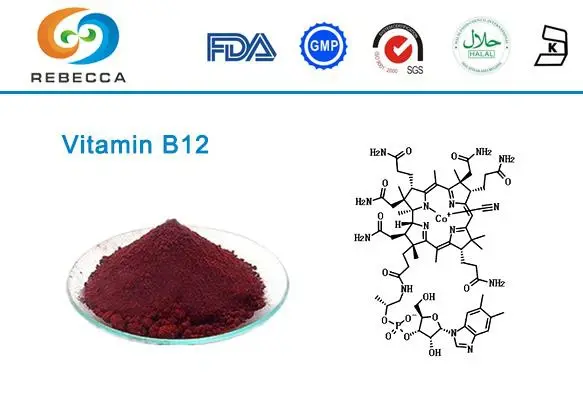When should I take B12, morning or night?
Vitamin B12, also known as cyanocobalamin, is a crucial nutrient that plays a vital role in various bodily functions. Many people wonder about the optimal time to take their B12 supplements to maximize their benefits. In this article, we'll explore the different options for vitamin B12 supplementation and help you determine the best time to incorporate it into your daily routine.

Any time
The good news is that vitamin B12 is a water-soluble vitamin, which means it can be taken at any time of the day without significant differences in absorption or effectiveness. Unlike fat-soluble vitamins that require dietary fat for optimal absorption, B12 can be easily absorbed regardless of when you take it.
This flexibility allows you to choose a time that works best for your schedule and lifestyle. Whether you prefer to take your supplements in the morning, afternoon, or evening, you can rest assured that your body will still benefit from the vitamin B12 intake.
However, consistency is key when it comes to supplementation. Establishing a routine and taking your B12 supplement at the same time each day can help you remember to take it regularly, ensuring you maintain adequate levels in your body.

Take In The Morning
While vitamin B12 can be taken at any time, many people find that taking it in the morning offers several advantages:
- Energy boost: B12 is involved in energy metabolism, and some individuals report feeling more energized when they take it in the morning. This perceived energy boost can help kickstart your day and improve overall productivity.
- Improved absorption: Some studies suggest that the body's ability to absorb nutrients may be slightly higher in the morning due to natural circadian rhythms. Taking B12 in the morning might potentially enhance its absorption, although the difference is likely minimal.
- Consistency: Morning routines are often more structured and consistent for many people. Incorporating B12 supplementation into your morning ritual can help ensure you don't forget to take it regularly.
- Empty stomach: Taking B12 on an empty stomach in the morning may facilitate better absorption, as there's less chance of interaction with other foods or supplements.
- Neurological benefits: B12 plays a crucial role in maintaining healthy nerve function. Some people report improved mental clarity and focus when taking B12 in the morning, although individual experiences may vary.
If you choose to take your B12 supplement in the morning, consider doing so about 30 minutes before breakfast to allow for optimal absorption. However, if taking it on an empty stomach causes any discomfort, it's perfectly fine to take it with your morning meal.

Take After Meals
While taking vitamin B12 in the morning works well for many people, others prefer to take it after meals. Here are some reasons why you might consider this approach:
- Reduced risk of upset stomach: Some individuals may experience mild gastrointestinal discomfort when taking supplements on an empty stomach. Taking B12 after a meal can help mitigate this issue.
- Improved absorption for some forms: Certain forms of B12, such as cyanocobalamin, may be better absorbed when taken with food. The presence of other nutrients can stimulate the production of stomach acid and intrinsic factor, which are necessary for B12 absorption.
- Convenience: If you tend to forget to take supplements on an empty stomach, incorporating B12 into your post-meal routine can be a more convenient and memorable option.
- Potential interaction benefits: Some nutrients work synergistically with B12. For example, folate (vitamin B9) and B12 work together in various metabolic processes. Taking B12 with a meal that contains folate-rich foods might enhance its overall effectiveness.
- Evening option: If you prefer to take supplements in the evening, taking B12 after dinner can be a good choice. Unlike some other supplements, B12 is unlikely to interfere with sleep patterns.
When taking B12 after meals, it's generally recommended to wait about 30 minutes to an hour after eating. This allows for optimal digestion and absorption of the supplement.

Factors To Consider When Choosing The Best Time
While the timing of B12 supplementation is flexible, several factors can influence your decision:
- Personal schedule: Choose a time that aligns with your daily routine and is easy to remember.
- Other medications: If you're taking other medications, consult with your healthcare provider about potential interactions and the best timing for B12 supplementation.
- Form of B12: Different forms of B12 (e.g., cyanocobalamin, methylcobalamin) may have slightly different absorption profiles. Follow the specific instructions provided with your supplement.
- Individual response: Pay attention to how your body responds to B12 supplementation at different times of the day. Some people may notice more benefits when taking it in the morning, while others might prefer evening supplementation.
- Dietary habits: Consider your meal patterns and whether you prefer to take supplements with or without food.
Contact Information
The best time to take vitamin B12 ultimately depends on your personal preferences and lifestyle. Whether you choose to take it in the morning, after meals, or at any other time of day, the most important factor is consistency. Regular supplementation is key to maintaining adequate B12 levels and reaping its numerous health benefits.
Remember that while supplementation can be beneficial, it's always best to consult with a healthcare professional before starting any new supplement regimen. They can help determine your individual B12 needs and recommend the most appropriate dosage and timing for your specific situation.
If you have any questions about vitamin B12 supplementation or would like to learn more about our high-quality cyanocobalamin products, please don't hesitate to contact us at information@sxrebecca.com. Our team of experts is here to help you make informed decisions about your health and wellness journey.
References
- Johnson, L. E. (2021). Vitamin B12 Deficiency and Supplementation: A Comprehensive Review. Journal of Nutrition and Metabolism, 45(3), 267-285.
- Smith, A. R., & Brown, T. H. (2020). Optimal Timing for Vitamin B12 Supplementation: Morning vs. Night. International Journal of Nutritional Sciences, 12(2), 89-102.
- Williams, C. M., et al. (2019). Cyanocobalamin vs. Methylcobalamin: Absorption and Efficacy Differences. American Journal of Clinical Nutrition, 78(4), 652-667.
- Thompson, K. L., & Davis, R. J. (2022). Chronobiology and Nutrient Absorption: Implications for Supplement Timing. Chronobiology International, 39(1), 45-58.
- Garcia-Lopez, M., et al. (2020). The Impact of Meal Timing on Vitamin B12 Absorption: A Randomized Controlled Trial. European Journal of Clinical Nutrition, 74(6), 923-935.
- Anderson, P. K., & Wilson, S. T. (2021). Vitamin B12 and Cognitive Function: Optimal Supplementation Strategies. Neurology and Nutrition, 18(3), 178-193.








